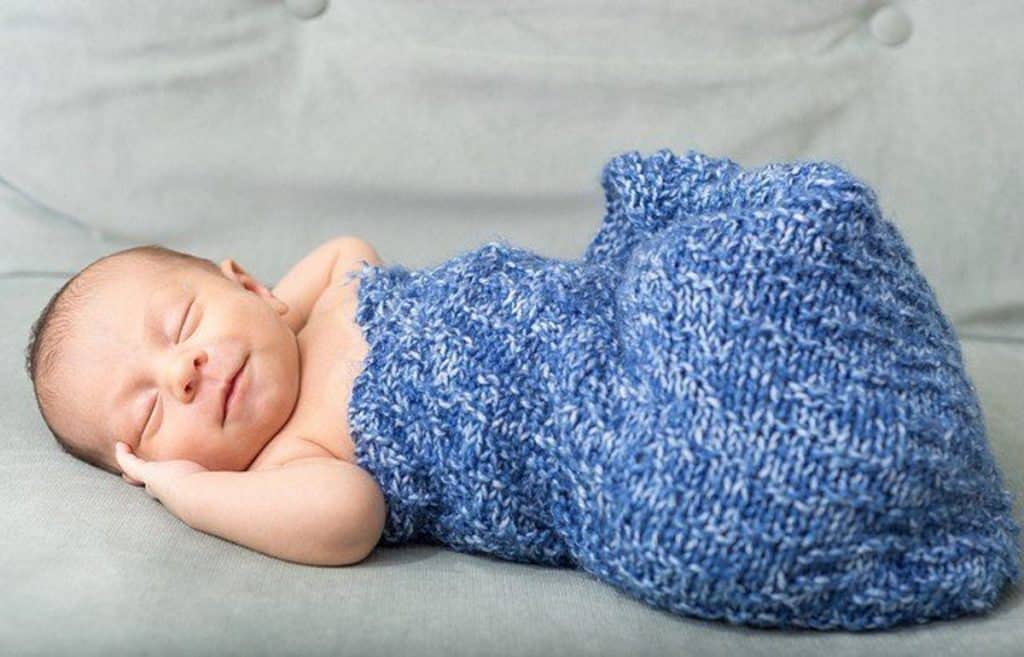
Table of Contents
A baby’s first year is full of unforgettable moments, from the time they take their first steps to eating their first solid food. Every “first” in your little human’s life is a milestone. Each milestone is an opportunity to make sure your child is growing and developing as expected.
Laughter is one such milestone that is every parent’s dream. Laughter is a baby’s way of communicating that they understand what their mama or papa is saying. This is a sign that your baby is alert, curious, and happy. So when do babies start to laugh? Is a baby’s laughing a sign of communication?
Read on to uncover these answers and learn the average time your baby may take to start laughing and what you can do if you miss this milestone.
When Do Babies Start to Laugh?
A baby’s laughing starts by the age of 3-4 months. However, if your baby doesn’t smile at 4 months, don’t worry because all babies are different and their learning and growth curve is different. Some babies learn to laugh earlier than others and that makes them no less different than their peers.
Here are 4 Ways To Make Your Baby Laugh
Your baby’s first laugh maybe when you give them a tummy kiss, make a funny noise, or let them bounce up and down. There are other techniques to make your baby squeak in laughter:
1. Sounds
A baby’s laughing may be a response to popping sounds, kisses, squeaks, and lip-pursed sounds. These auditory cues are way more interesting to them than regular voices.
2. Gentle Touch
Gently tickling your baby’s skin and gently blowing on it is a fun and different feeling for your baby. Kissing their feet or hands, or blowing on their soft squishy tummies may also make them laugh.
3. Noise Maker
Objects around the baby such as bells or zippers may also make your baby laugh. Until your baby laughs, you won’t know what it is, but try different sound makers to see why your baby laughs. It’s the perfect game sometimes.
4. Play Games like Peek-a-boo
Babies of any age can play peek-a-boo, but they may not laugh and respond until they are four to six months old. Babies at this age are learning about “object permanence”, understanding that something exists even when they can’t see it.
Remember that your baby’s laughing at this age is typically a response to something. It will get simpler for your child to laugh merely for enjoyment as they master the art of laughing.
Why is a Baby’s Laughing Important?
Good things happen when you are your little human laugh. Family laughter can help in
- Creating a bond between you and your little human
- Relieving stress in you which reflects in your baby
- Boosting immunity in both of you by increasing the immune cells
- Building resilience in babies as they observe and understand us more than we think
Now, sometimes you may notice that your baby is not laughing at all. Why is that? Babies have their rate of growth and maybe they need a little more time. But make sure that by the end of 7 months of age, they laugh and giggle. If not, get in touch with your child’s healthcare provider.
What Should You Do When Your Baby’s Laughing Stage Hasn’t Begun?
A baby usually laughs between the ages of 3 to 4 months. If it’s four months and your baby still isn’t smiling, don’t worry. Some babies are more serious and don’t laugh or tickle as much as others. This may be fine, especially if you’ve achieved all of your other developmental milestones.
So you must focus on all age-appropriate milestones, not just one. However, if your baby hasn’t reached a few developmental milestones, it’s worth talking to your pediatrician.
Here are some of the milestones in a 4-months-old baby:
- Smiles spontaneously
- Eyes track moving objects
- Observes faces and recognize familiar people
- Enjoys playing with people
- Coos and babbles
The emotional constitution of your baby includes laughter as well. Although some newborns with quieter, more sensitive, or timid temperaments might not laugh as much as other children, they nevertheless require the same amount of love and support. Give children time and room to adjust to new circumstances so they feel at ease speaking their minds.
When to Talk to a Doctor About Your Baby’s Laughing?
You may get in touch with a doctor if you are super concerned about your baby not smiling or laughing. As part of this visit, your doctor may ask about the milestones your baby is reaching. From there you can decide if you want to wait and see what happens or if you want your baby’s doctor to recommend further testing. There may be treatments that can help your baby develop better and keep pace with other children his age.
A Final Word on When Do Babies Start to Laugh
Laughter is your baby’s way of communicating with you and is just one step in a child’s journey of development. But remember that every baby is unique and each grows at its own pace. Don’t compare your child to another or another.
Did you know that babies start smiling around 6 to 8 weeks? These smiles are called social smiles and are proof that you and your baby are bonding. Then you get to hear cooing and eventually giggles.









